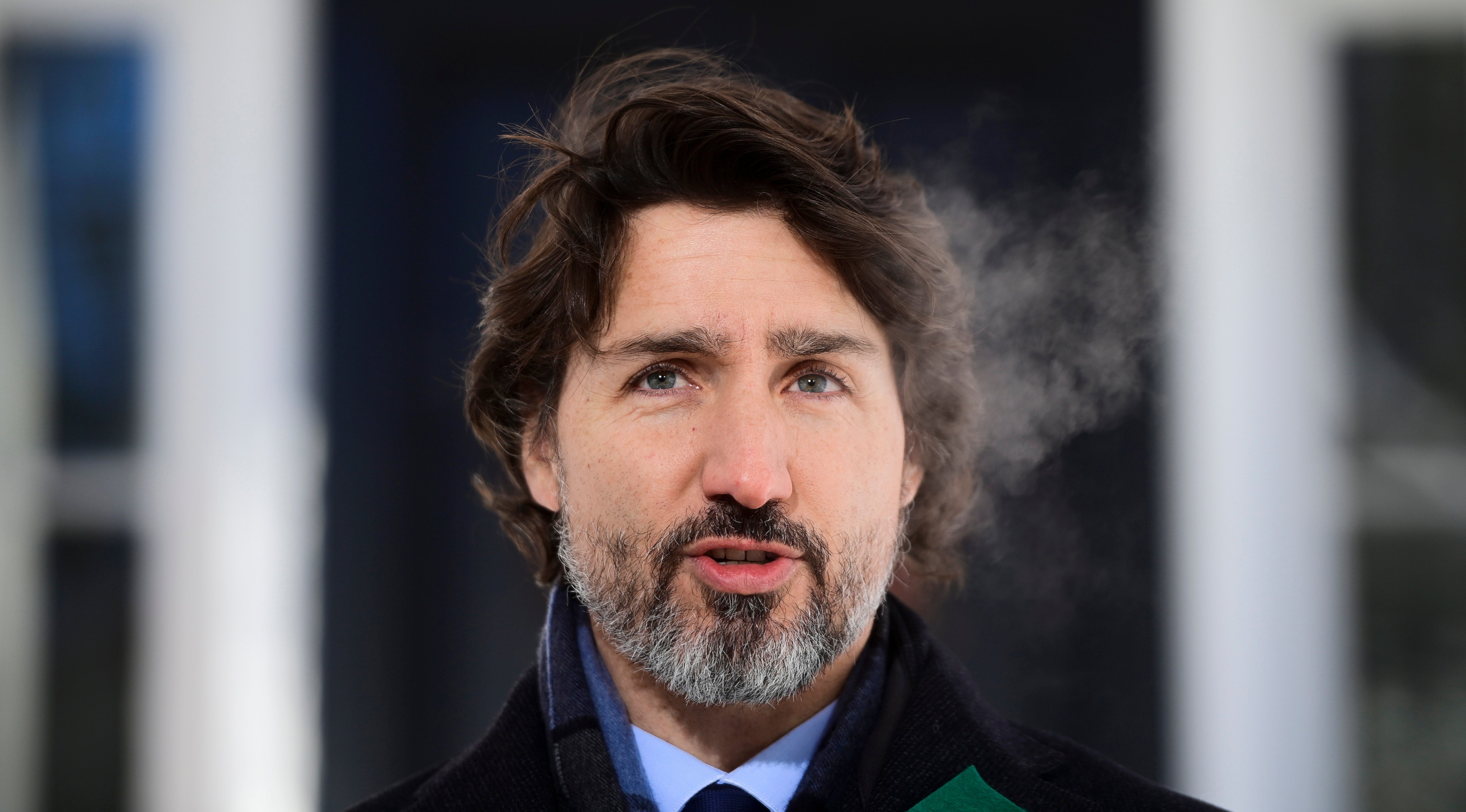Trudeau tries to reassure Canadians vaccines are coming
Prime Minister Justin Trudeau Justin is trying reassure Canadians his plan to vaccinate them is working despite what he calls are short term delays and criticism his government is not moving fast enough

Your support helps us to tell the story
From reproductive rights to climate change to Big Tech, The Independent is on the ground when the story is developing. Whether it's investigating the financials of Elon Musk's pro-Trump PAC or producing our latest documentary, 'The A Word', which shines a light on the American women fighting for reproductive rights, we know how important it is to parse out the facts from the messaging.
At such a critical moment in US history, we need reporters on the ground. Your donation allows us to keep sending journalists to speak to both sides of the story.
The Independent is trusted by Americans across the entire political spectrum. And unlike many other quality news outlets, we choose not to lock Americans out of our reporting and analysis with paywalls. We believe quality journalism should be available to everyone, paid for by those who can afford it.
Your support makes all the difference.Prime Minister Justin Trudeau tried Friday to reassure Canadians his plan to vaccinate them is working despite mounting criticism his government is not getting vaccines soon enough.
Trudeau said there is “a lot of anxiety and a lot of noise,” but said Canada is still on track to get 6 million doses of Pfizer and Moderna vaccines by the end of March and 20 million in the spring.
“We are very much on track,” Trudeau said.
Canada, like most countries around the world, has been struggling to vaccinate people quickly.
Both Pfizer and Moderna have cut the number of doses Canada expected to get thus far, but Trudeau says he still expects to get 4 million doses from Pfizer and 2 million from Moderna by the end of March.
Trudeau said they are still very much on track based on what the chief executives of the companies keep telling him.
Canada didn’t get any Pfizer doses last week after Pfizer announced a temporary reduction in deliveries so that it could upscale its Puurs, Belgium, plant to handle more production. That plant supplies all Pfizer shots delivered outside the U.S. Moderna has also had trouble scaling up production.
Trudeau reiterated that Canada has signed contracts with seven different vaccine makers and he expects Canada will get more doses per person than any other country in the world. He reiterated that everyone who wants to be vaccinated will be by September. Officials says they have agreements to import 10 doses per Canadian. Canada has a population of 37 million.
Canada does not have domestic vaccine production and the government made sure to arrange shipments from Europe instead of the U.S. because Europe was deemed more reliable than the Trump administration.
The European Union has talked about a vaccine export ban, but Trudeau has said he’s been reassured by top EU officials that Canada will still its doses.
Trudeau also defended Canada's arrangement for getting doses from the COVAX program coordinated by the World Health Organization, which seeks to ensure that low- and middle-income countries have enough vaccines at a time when wealthy nations have snapped up a large part of the billions of upcoming doses from mostly Western vaccine makers.
“When wealthier countries invest in COVAX, half of that funding is to get doses at home, and the other half is to buy doses for low- and middle-income countries,” Trudeau said.
“Our contribution was always intended to access vaccine doses for Canadians as well as to support lower income countries.”
Trudeau said through COVAX, and pending Health Canada approval, Canada will receive at least 1.9 million doses of the AstraZeneca vaccine before the end of June. He said that’s addition to the 20 million doses Canada has already secured itself from AstraZeneca.